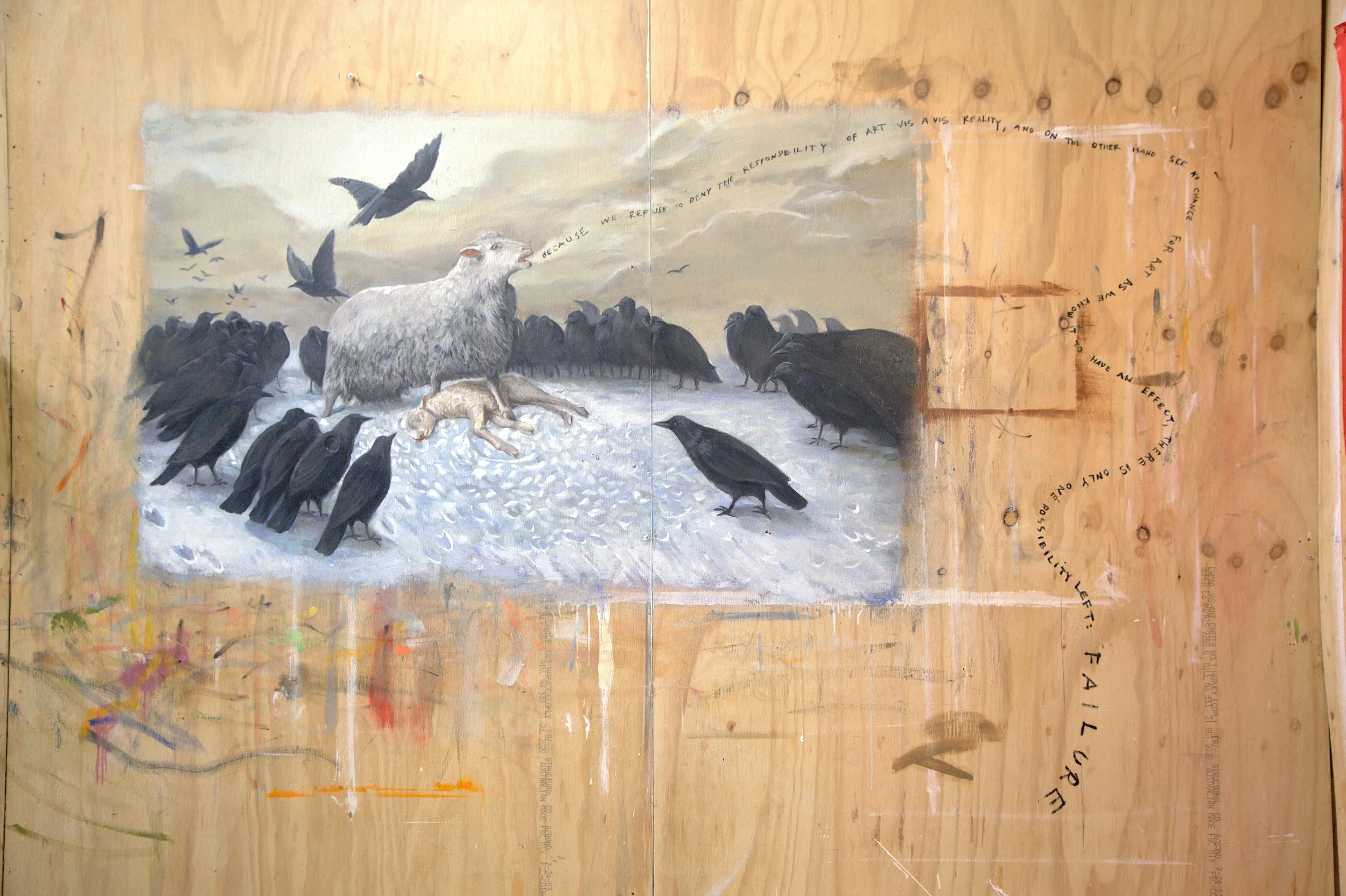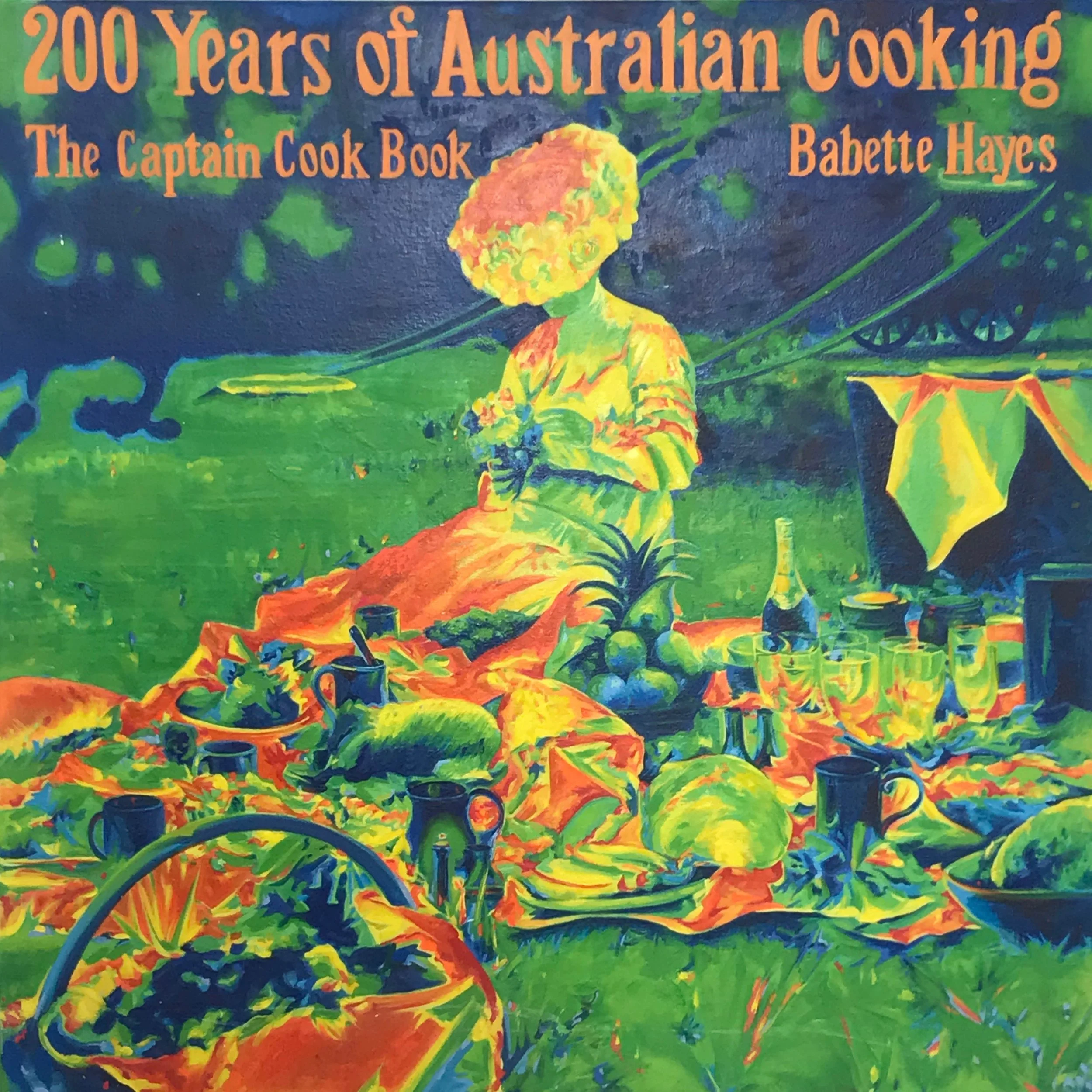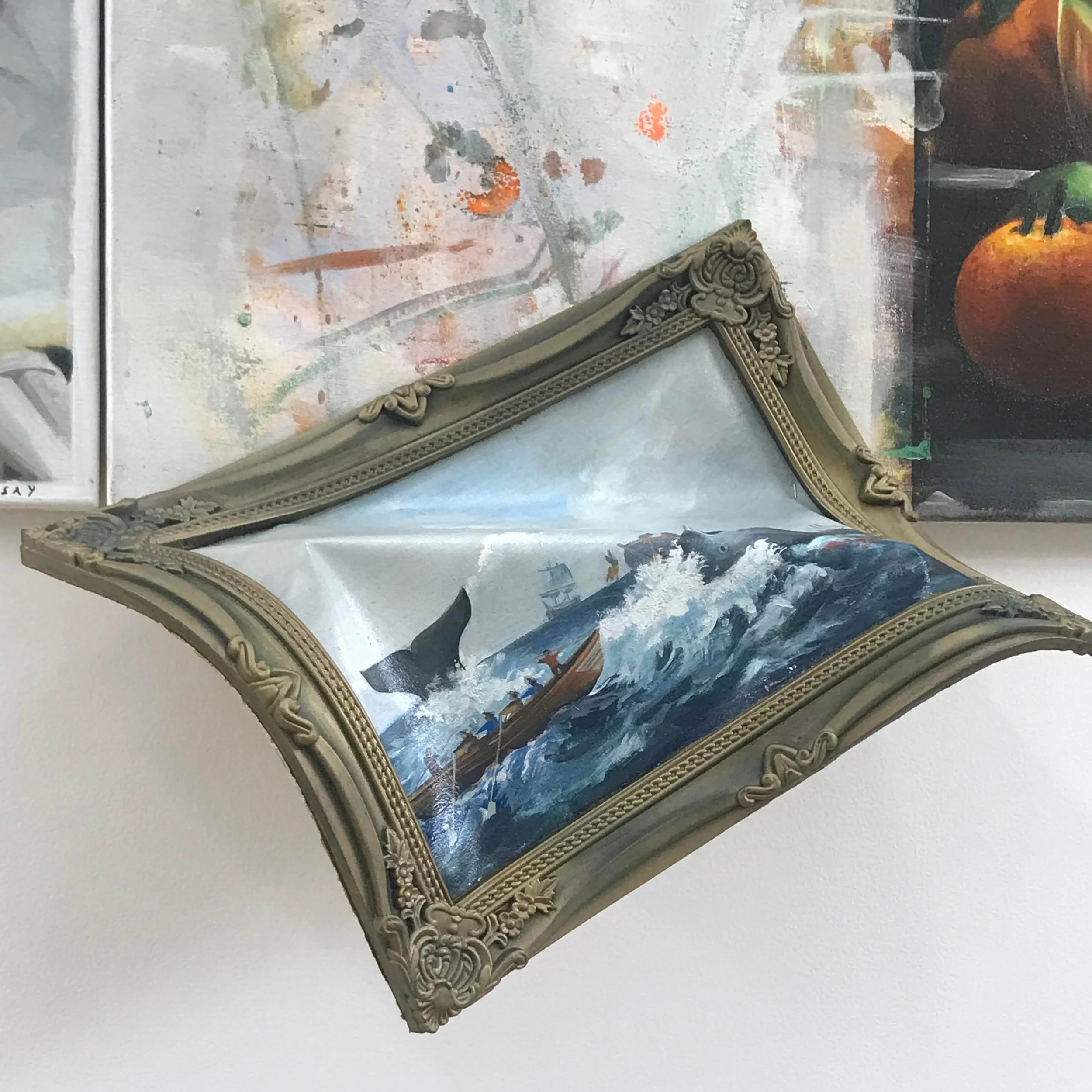
RESENTMENTS
Robert O’Connor
24th October - 9th November
One night a few years ago on Late Night Live, Phillip Adams opened the episode by thanking the great critic and writer Michael Denholm for sending a box of his books to the ABC studio. The great critic and writer Michael Denholm writes books that nobody reads. His books are giant SUVs filled with entries on Kathleen Raine and Rudolph Steiner and the spiritual realm, and various esotericism, and combatting ignorance, and an entire tome dedicated to ‘criticising the critics’. Since founding and editing successful magazines and journals in the 1980s, people have been mostly dismissive of him and his work. His three-part autobiography that nobody has read is a thousand pages of resentments, told via great works of others. The subject of transcending futility and his declining reputation in the arts buttresses every mini-chapter.
Last week he wrote to me about a museum acquiring one of my portraits of him. He writes letters like he writes books which is also like how he talks; scattered encyclopedia entries that all point towards ‘everyone’s an idiot’. He said that “Patrick White, at the end of his novel ‘Voss’, wrote that there was a chance for the seeds of art to emerge in Australia. But Bill Henson said, when the controversy emerged around his photography, that he considered the arts were like topsoil and, if a gust of wind emerged, the arts would all blow away. What has happened now is that the wind has blown it all away. The addiction to new technology has assisted in dumbing everything down, people obsessed with trivia lacking the attention span and the critical acumen to understand the great and the good from the mediocre and the bad in the land of influencers.” He might be right, or it might just be like when a new alpha emerges in a troupe of chimps and the old alpha has to beat his chest and say a bunch of hurtful things that no one listens to. A classic Capricorn, the great critic and writer Michael Denholm signed off the message with “Art, in so many ways, is a conversation with the dead, and occasionally with the living.”
Unliked and terminally depressed, the great critic and writer Michael Denholm [I think] sees the realm of art as an alternative to the realm of life, as do I. The thing is that writers are like artists; some are taken seriously and some aren’t. The latter find them[our]selves in a trap of resentment. If the etymology of resentment comes from the French “ressentir” – the intensive prefix ‘re-‘ and the Latin ‘sentire’ to feel – then a resentment is a re-feeling or rumination. The English word has become synonymous with anger, spite, and holding a grudge. The works in this show rework and recontextualise hermetic and elitist tropes of painting’s history to a dual effect: they look stupid to experts and snobby to the uninitiated. Really, it’s the result of a crummy education. There are images, colour, materiality. Then there are silly titles. John C. Welchman calls titles of artworks ‘invisible colours’ that fetter a work’s visuality, even if it is ‘untitled’. All of the works in this show are blockades that bespeak the sense of futility that they try to break out of. A failure to express the personal is still an expression.
Robert O’Connor [b. 1984] is based in Tasmania. He doesn’t communicate. He has no ideas. He sees and combines things. He is a curator of content, and all content is equal, and all equally empty, even when it is really beautiful or amazing or new.
Foster's Rule describes how animal species evolve differently on islands compared to the mainland, with large species tending to become smaller and small species tending to become larger. This rule highlights the unique evolutionary pressures present in isolated ecosystems, which can also include the absence of natural predators, like Rottnest Island where quokkas can loaf around all day unbothered, save for occasional tourists.

